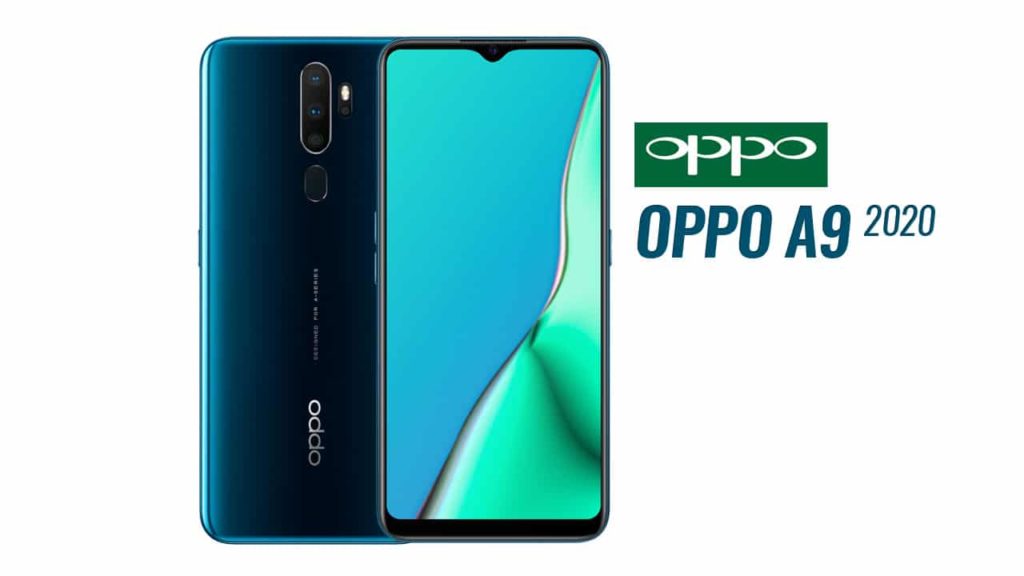OPPO A9 2020
The OPPO A9 2020 comes with a premium design that features a 3D gradient back we have seen from Xiaomi and Samsung, with an attractive glass finish. The quad-camera setup sits vertically alongside the LED flash. There’s also a quick fingerprint sensor and the OPPO logo placed vertically. You get a dual-sim slot that also hosts an external microSD card(up to 256GB). You get a headphone jack and Type-C charging port that also supports fast charging.
Specifications:
MEMORY
FEATURES
LAUNCH
COMMS
SOUND
PLATFORM
MAIN CAMERA
BATTERY
NETWORK
MISC
SELFIE CAMERA
BODY
DISPLAY
The highlight of this device is a screen resolution of 720 x 1600 pixels, 20:9 ratio (~270 ppi density) with a type of IPS LCD capacitive touchscreen, 16M colors. Oppo A9 (2020) spots an Octa-core (4×2.0 GHz Kryo 260 Gold & 4×1.8 GHz Kryo 260 Silver) on a chipset of Qualcomm SDM665 Snapdragon 665 (11 nm). It comes with 128GB of storage and 4GB RAM, 128GB storage and 8GB RAM, UFS2.1 of Internal Storage and battery of 5000mAh battery. Rather solid specs but with glaring compromises. First, the 720p display. I don’t understand why manufacturers insist on this in 2019. I mean we saw the Samsung Galaxy A20 and the Xiaomi Mi A3, but even those were AMOLED. OPPO A9 2020 will retail from Ksh 29,999 and frankly, that is a hard price to justify in 2019.
OPPO A5 2020
The smaller of the two is the OPPO A5 2020. This device runs on the Android v9.0 (Pie) operating system. It is powered by Octa-core (2 GHz, Quad-core, Kryo 260 + 1.8 GHz, Quad-core, Kryo 260) processor. It runs on the Qualcomm Snapdragon 665 Chipset and has 3 GB RAM and 64 GB internal storage. The screen has a resolution of 720 x 1600 pixels and 270 ppi pixel density. It has an aspect ratio of 20:9 and a screen-to-body ratio of 82.47 %. On the camera front, the device spots an 8 MP Front Camera and on the rear, there’s a 12+8+2+2 MP camera setup. On the 25th of October, they’ll be an OPPO sale in all their retail shops. The OPPO A5 2020 won’t be available immediately as it will start selling from early November. Players like Samsung, Huawei and more recently, Xiaomi, aren’t messing around in the sub Ksh 30,000 pricepoint. I can already think of 5 viable alternatives, some with much better IPS panels. It will be interesting to see how these devices fair in the market.

